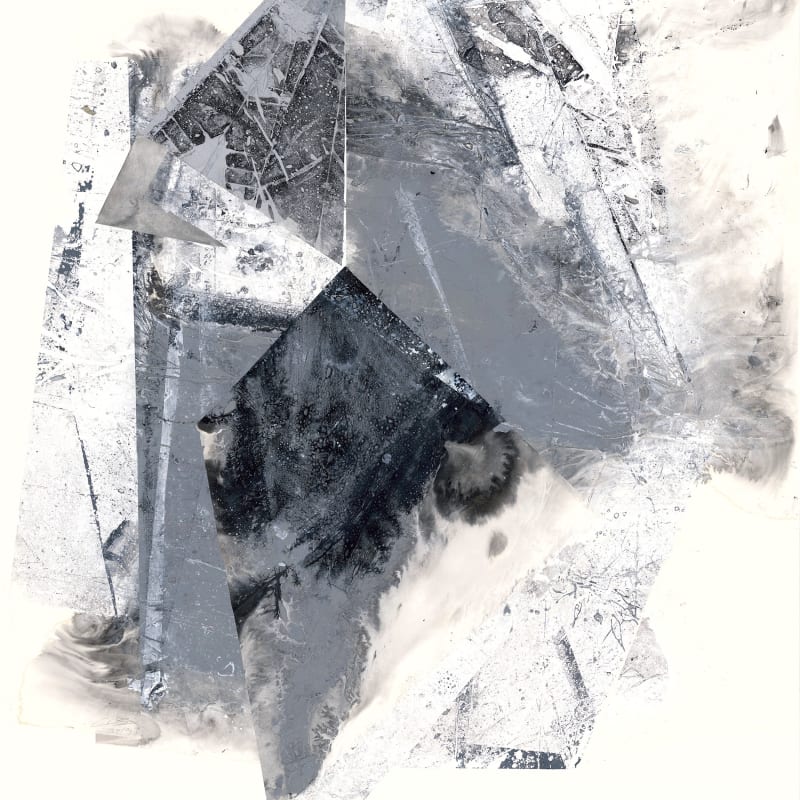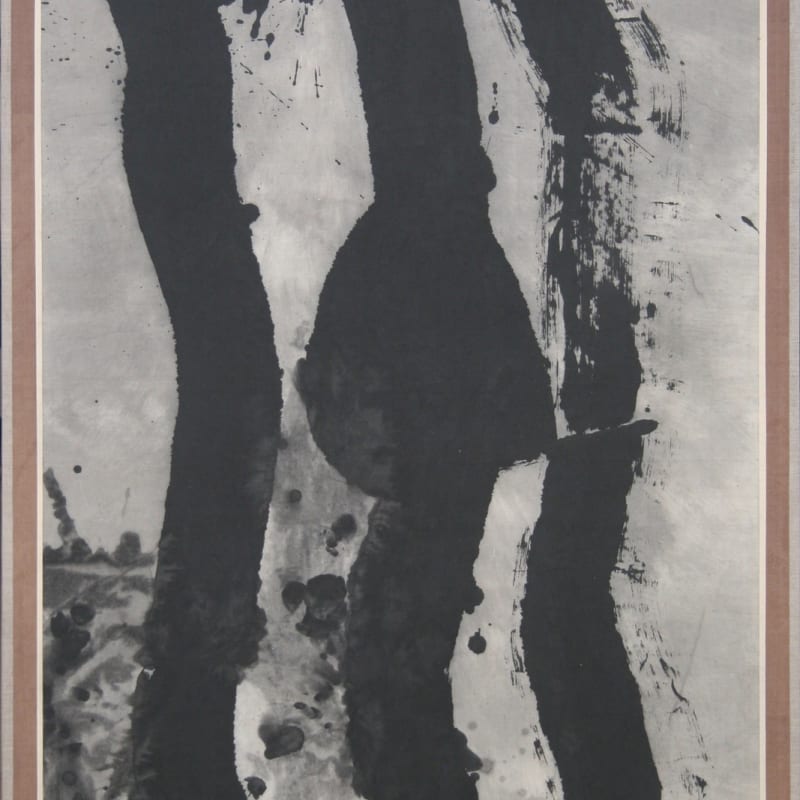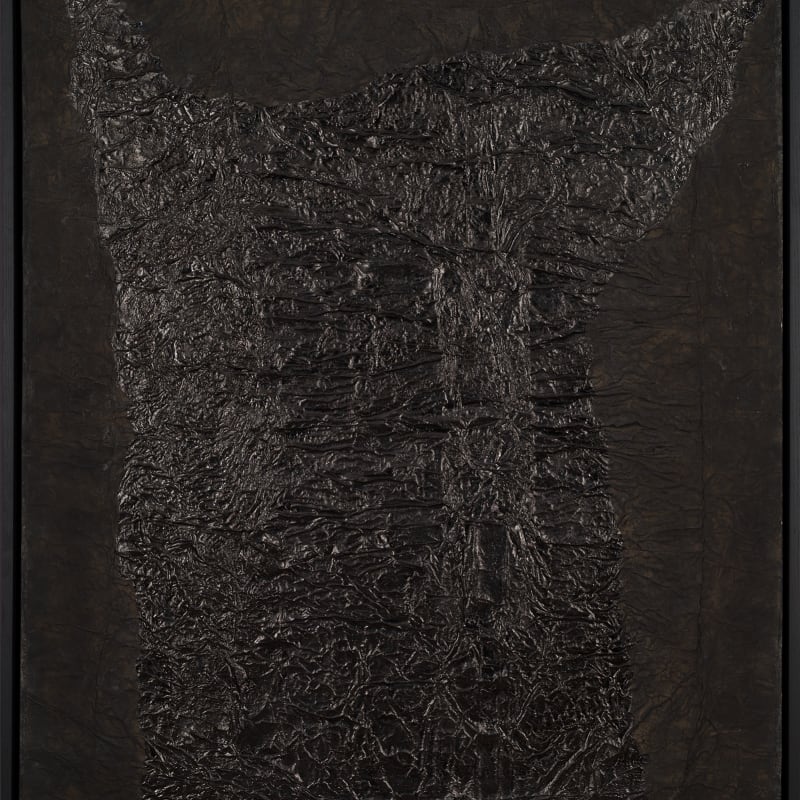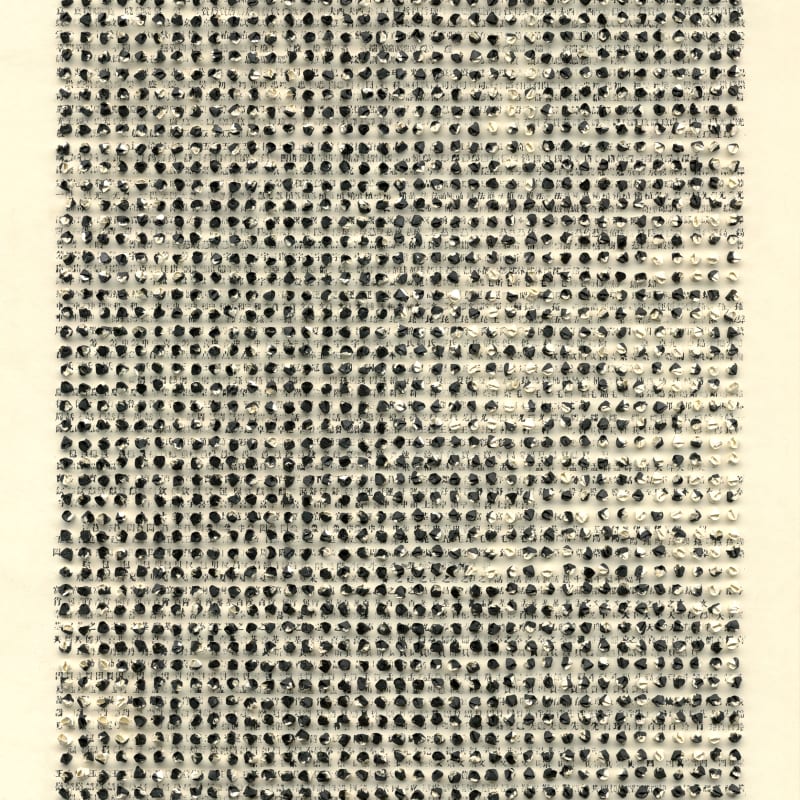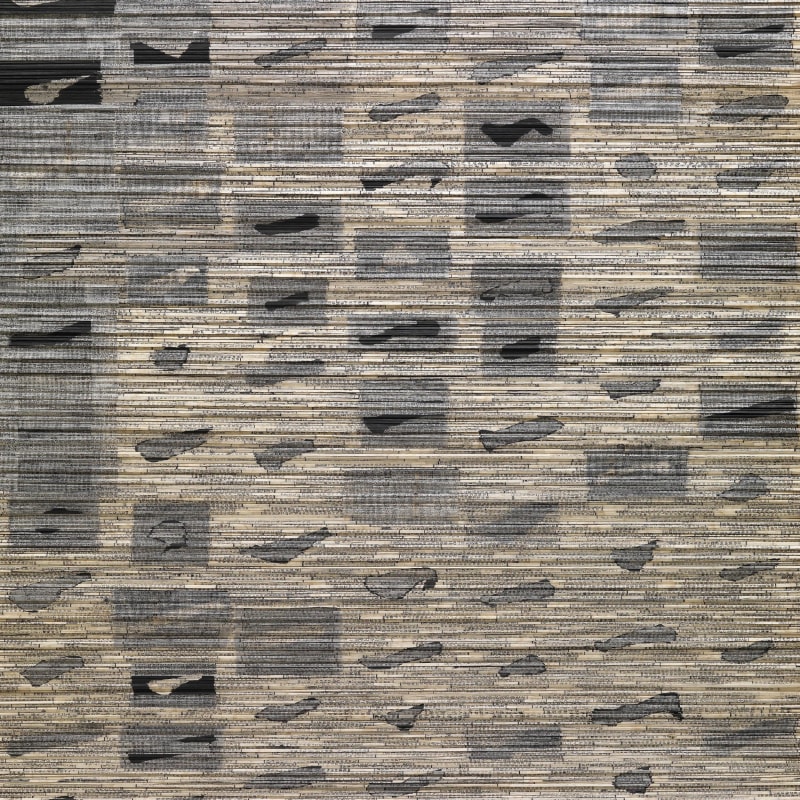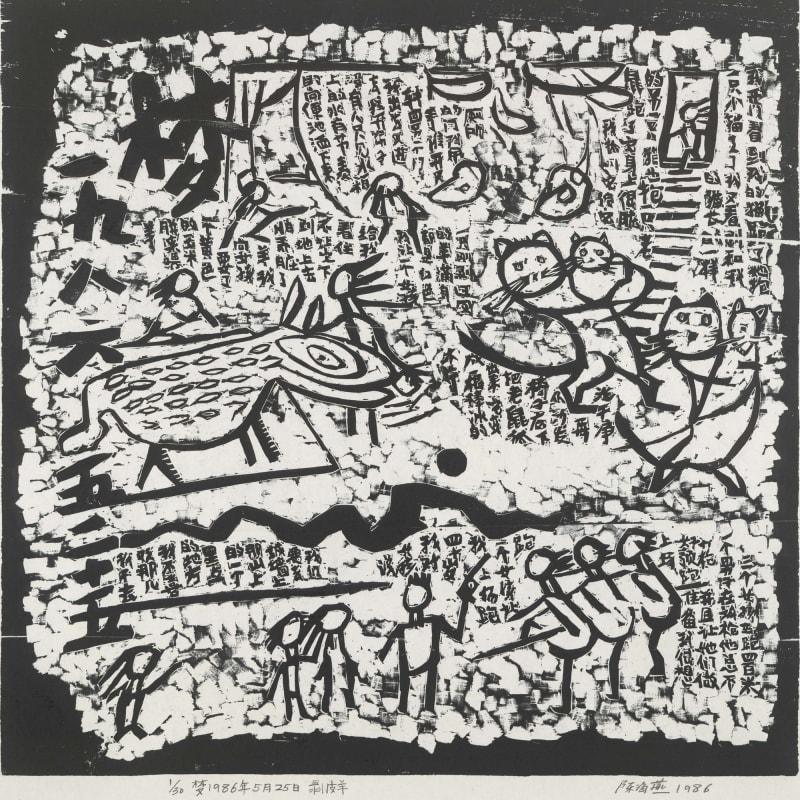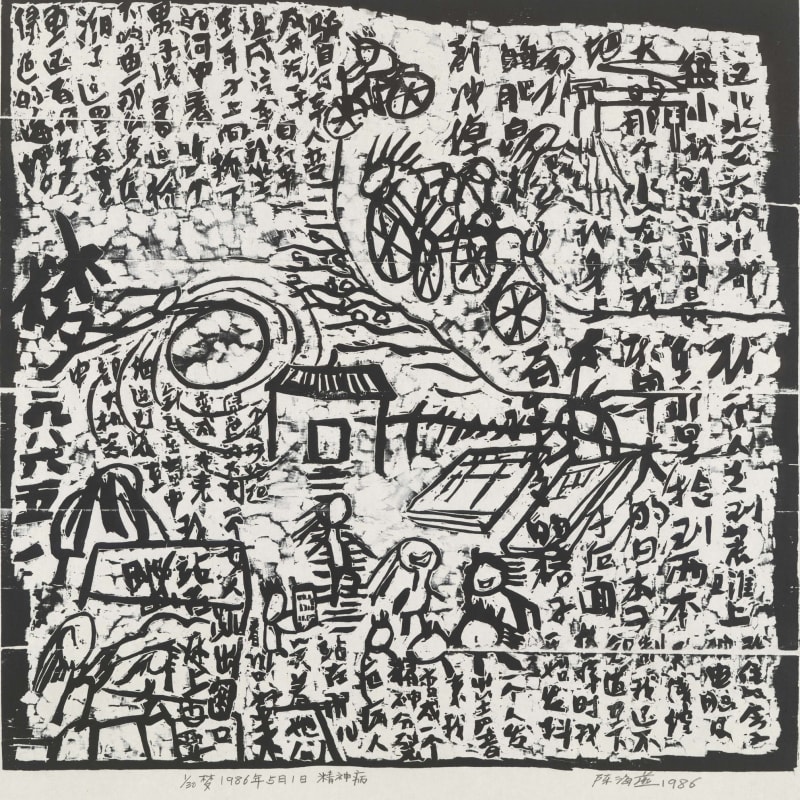Booth 1C28
Hong Kong Convention and Exhibition Center, 1 Expo Drive, Wan Chai
INK as East Asian Discourse
INKstudio presents modern & contemporary ink art as a critical East Asian Postwar discourse. Contemprary paintings from Korea, Taiwan and China explore the unfolding material processes of the natural world alongside embodied human processes of moral and spiritual self-cultivation.
INK as Meditation and Repetition
In Huang Zhiyang’s Three Marks series, three groups of three brushstrokes compose the fundamental units of an abstract field. At one end, all of the strokes gather together or cohere at a single point—this is yin and represents stability; at the other end, the strokes differentiate and spread outward—this is yang and represent dynamic change. Together, these marks make visible the dynamic tensions that underlie both physical and mental phenomena.
Jeong Gwang Hee's hanji paintings and sculptures are process orientated, created by brushing ink over hand-wadded pages of antiquarian Confucian and Buddhist books which the artist has collected and read. The process transforms the hermeneutics of canonical texts which underpin the transmission of knowledge, culture and power in East Asia into a physical, anomial act of personal liberation and self-creation.
INK as Nature and Difference
Through the interactions of ink, acrylic, water, and paper, Zheng Chongbin’s “indexical” abstractions generate and record the processes that underlie the emergence of order—including organic life and human consciousness—and its inevitable dissipation. His paintings thus resemble natural structures ranging from neurons, blood vessels, and tree branches to mountains, rivers, and coastlines, but by instantiating their formation rather than by objective depiction.
Bingyi sees painting as a collaboration with the natural elements of wind, sun, humidity, air pressure, temperature, gravity and terrain in combination with the traditional materials of ink and water on bespoke xuan paper to reveal the intensive differences driving the natural processes—both geological and the climatological—that shape our extensive world. In this way, Bingyi uses ink as "dark light"—carbon, an absolute absorber of light, in water, nature's universal, translucent solvent—to illuminate the usually invisible and transient physical processes that enable ordered patterns to arise from chaotic flows.
INK as Figuration and Self
Liu Dan is widely seen as the founder and most influential proponent of the contemporary Neo-Song landscape painting movement. Few, however, recognize that Liu Dan’s foundational artistic training was in human figuration. One of the first Chinese artists to emigrate to the United States in 1981, Liu Dan’s early studies and experiments in figuration, drawing, landscape painting and pure abstraction reveal the transition of this seminal artist from the human form to the landscape.
Chen Haiyan is one of China's greatest printmaking artists, and stands out for her long-term practice of keeping dream diaries upon waking each morning. Through her signature woodcut practice, Chen Haiyan bares her intimate inner world, encoded in dream texts carved into the tableaux of her works. She exposes with disarming candor, and without fanfare, subtle truths of complexity and contradiction, fears and anxieties, desires and hopes, as well as observations and insights about herself, the lives of women, and indeed people, everywhere.
A stunning statement at its debut in the exhibition Les Magiciens de la terre at the Centre Pompidou in 1989, Yang Jiechang’s One Hundred Layers of Ink series would shape the development of contemporary Chinese art, anticipating now-commonplace strategies like repetition, inarticulacy, traceless action, and manipulations of monumentality. Integrating experiments in figuration, abstraction and calligraphy from throughout the 1980’s, the Hundred Layers series documents Yang Jiechang’s changing life circumstances in response to the events 1989.
